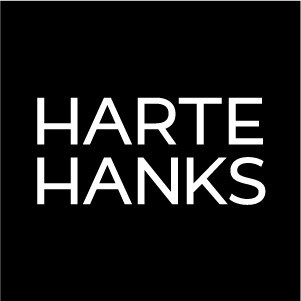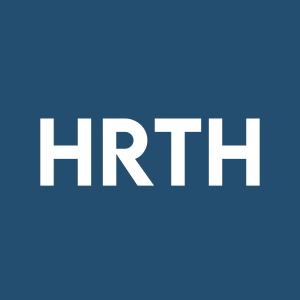New Study Shows Vaccine Rollout Driving Hopeful Attitudes And Behavior Among Consumers For The First Time In A Year
A recent study by Harte Hanks indicates a notable shift in consumer attitudes as COVID-19 vaccinations increase. Survey respondents reported a score of 73 on an emotional scale, showing a 44% rise in joy and 22% in hope since September. Women expressed concerns over job losses, while millennials exhibited heightened optimism towards business travel and finances. Additionally, 42% are eager to try new experiences, with over half prioritizing health. The study underscores the importance of brand quality and reliability in post-pandemic consumer behavior.
- 44% increase in respondents feeling joy since September.
- 22% increase in respondents feeling hope since September.
- Millennials are 24% more optimistic about business travel and 23% about finances.
- 42% are much more likely to try new things than a few months ago, indicating increased consumer engagement.
- Women reported significant losses regarding jobs and economic opportunities due to the pandemic.
AUSTIN, Texas, March 29, 2021 /PRNewswire/ -- A new study by Harte Hanks shows that as more vaccines are distributed, people are beginning to bounce back from lockdown fatigue and frustration. In addition to feeling more hopeful, survey respondents are not only ready to leave isolation, they may be ready to start looking for a new relationship or an end to an existing one.
The Harte Hanks survey reveals that when asked about their current emotional state of mind, respondents indicated they were at a 73 on a scale of 0 (being anger) to 100 (being joy). This score reflects a strong leaning towards a "hopeful" emotional state of mind for the first time in the past year compared to its September score of 64, which leaned to uncertainty.
"Hope is replacing negativity and will clearly drive behavior moving forward," said Gretchen Ramsey, Chief Strategy Officer at Harte Hanks. "People are expressing a desire to resume some of their day-to-day routine and try new things—which may include a new relationship—while being mindful of the behavioral changes they want to uphold post-pandemic."
Expectations for the impact of the vaccine in their lives are very high among those surveyed. Key findings of the survey include:
- HOPE AND JOY REPLACE HOPELESSNESS AND NEGATIVITY: There was a
44% increase in mindset of those feeling joy, and a22% increase in those feeling hope since September. Conversely, there has been an18% decrease in those feeling uncertainty,27% decrease in feelings of fear, and a45% decrease in feelings of anger since September. - WOMEN FEEL IMPACT OF SHE-CESSION: Women are more likely to talk about what's been lost over the past year (e.g. jobs, economic opportunity) than men. Key concerns include the impact of schools being closed or only partially open; its effect on their child's education; and the loss of jobs or career opportunities.
- M GEN POSITIVITY COULD DRIVE ECONOMIC GROWTH: Millennials are feeling a significant increase in hopefulness and positivity. They are
24% more likely to feel optimistic about business travel;23% more optimistic about their finances;16% more optimistic about their mental health; and15% more optimistic about their shopping habits than other population segments. - READY FOR NEW THINGS: Whether it's a new relationship, new product or new experience, survey respondents are ready for new things in their lives. In fact,
42% say they are much more likely to try new things than they were a few months ago, representing a 17-point increase from the most recent study findings in the fall. - HEALTHY BODY, HEALTHY MIND: More than half of respondents want to exercise more and eat healthy (
57% ) and are looking for new ways to keep their family healthy (56% ). Another (41% ) are hopeful that the vaccine's rollout will enable them to improve their mental health. - THE HUMAN TOUCH: Roughly a third of respondents want to be kinder to people around them (
35% ); get more sleep (35% ); keep in closer touch with friends and family (34% ); and stand up for what they believe in (31% ). - THE SIMPLE PLEASURES AND A RETURN TO ROUTINE: Respondents are looking forward to doing everyday activities post-vaccine including visiting a barber or hair salon (
50% ); eating out at a restaurant (46% ); going to the office everyday (44% ); shopping at the mall (38% ); and no longer working at home (37% ).
When it comes to brands, a third (
"Relationships, whether with people or brands are up for grabs in the post-vaccine society," says Ramsey. "If you don't nurture them, they could quickly rebound into a new, more loving one pretty quickly."
About the study
The survey findings were based on the fifth wave of the Harte Hanks Behavioral Index™, a global initiative conducted on a quarterly basis since the beginning of the pandemic to uncover emerging behavioral shifts that influence consumer behavior. The ultimate goal is to help brands understand how to best meet their consumers' needs.
The Index was developed using a proprietary method that evaluates brands on a set of criteria, such as Empathy and Action – both ways to serve consumers. The latest wave is based on 500 million global social conversations with 2,600 people surveyed, 20,000 global stories and 2 million semantic artifacts.
To learn more, watch a recording of the full webinar here.
Previous Behavioral Index findings can be found at hartehanks.com/insights.
About Harte Hanks
Harte Hanks (OTCMKTS: HRTH) is a global omnichannel customer experience company. We partner with clients to seamlessly manage experiences with their customers throughout the entire customer lifecycle through our marketing services, customer care, and fulfillment and logistics offerings. Harte Hanks works with some of the world's most respected brands including Bank of America, BMW Group, Cisco, HBO, IBM, Pfizer, Sony, and Unilever, among others. Headquartered in Austin, Texas, Harte Hanks has more than 2,000 employees in offices across The Americas, Europe, and Asia Pacific.
For more information, visit hartehanks.com.
For any questions, please contact Morgan.McCue@hartehanks.com
![]() View original content to download multimedia:http://www.prnewswire.com/news-releases/new-study-shows-vaccine-rollout-driving-hopeful-attitudes-and-behavior-among-consumers-for-the-first-time-in-a-year-301257229.html
View original content to download multimedia:http://www.prnewswire.com/news-releases/new-study-shows-vaccine-rollout-driving-hopeful-attitudes-and-behavior-among-consumers-for-the-first-time-in-a-year-301257229.html
SOURCE Harte Hanks
FAQ
What were the key findings of the Harte Hanks study conducted in March 2021?
How have attitudes toward consumerism changed according to the Harte Hanks survey?
What emotional score did survey respondents give, and how does it compare to September?








